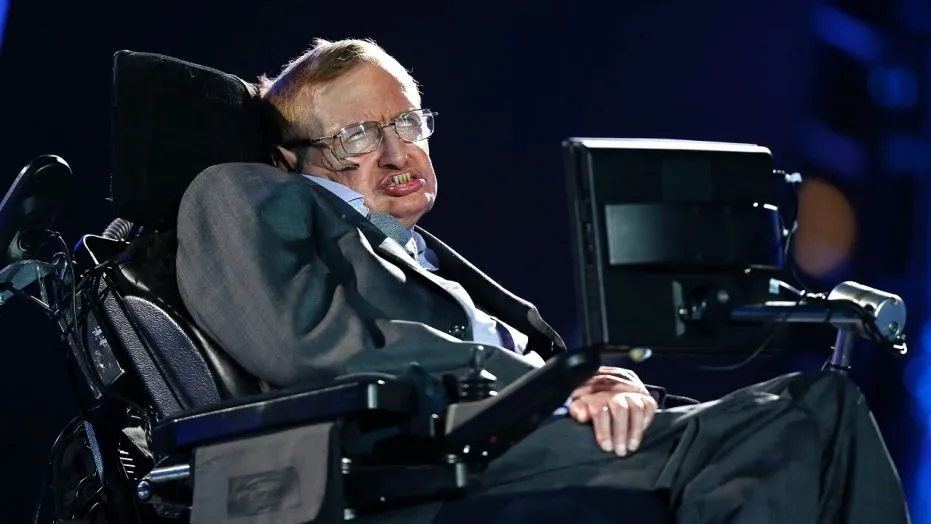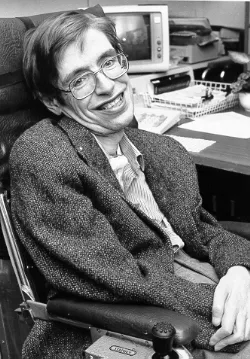Thousands flooded social media late Tuesday after news broke that famed physicist Stephen Hawking died at the age of 76.
8 January 1942 – 14 March 2018) was a British theoretical physicist, cosmologist, author and Director of Research at the Centre for Theoretical Cosmology within the University of Cambridge. His scientific works include a collaboration with Roger Penrose on gravitational singularity theorems in the framework of general relativity and the theoretical prediction that black holes emit radiation, often called Hawking radiation. Hawking was the first to set out a theory of cosmology explained by a union of the general theory of relativity and quantum mechanics. He was a vigorous supporter of the many-worlds interpretation of quantum mechanics.

n 1974 Hawking drew on quantum theory to declare that black holes should emit heat and eventually pop out of existence. For normal-sized black holes, the process is extremely slow, but miniature black holes would release heat at a spectacular rate, eventually exploding with the energy of a million one-megaton hydrogen bombs.
His proposal that black holes radiate heat stirred up one of the most passionate debates in modern cosmology. Hawking argued that if a black hole could evaporate, all the information that fell inside over its lifetime would be lost forever. It contradicted one of the most basic laws of quantum mechanics, and plenty of physicists disagreed. Hawking came round to believing the more common, if no less baffling, explanation that information is stored at a black hole’s event horizon, and encoded back into radiation as the black hole radiates

Selected academic works
Hawking, S. W.; Penrose, R. (1970). "The Singularities of Gravitational Collapse and Cosmology". Proceedings of the Royal Society A: Mathematical, Physical and Engineering Sciences. 314 (1519): 529–548. Bibcode:1970RSPSA.314..529H. doi:10.1098/rspa.1970.0021.
Hawking, S. (1971). "Gravitational Radiation from Colliding Black Holes". Physical Review Letters. 26 (21): 1344–1346. Bibcode:1971PhRvL..26.1344H. doi:10.1103/PhysRevLett.26.1344.
Hawking, S.W. (1972). "Black holes in general relativity". Communications in Mathematical Physics. 25 (2): 152–166. Bibcode:1972CMaPh..25..152H. doi:10.1007/BF01877517.
Hawking, S. W. (1974). "Black hole explosions?". Nature. 248 (5443): 30–31. Bibcode:1974Natur.248...30H. doi:10.1038/248030a0.
Hawking, S.W. (1982). "The development of irregularities in a single bubble inflationary universe". Physics Letters B. 115 (4): 295–297. Bibcode:1982PhLB..115..295H. doi:10.1016/0370-2693(82)90373-2.
Hartle, J.; Hawking, S. (1983). "Wave function of the Universe". Physical Review D. 28 (12): 2960–2975. Bibcode:1983PhRvD..28.2960H. doi:10.1103/PhysRevD.28.2960.
Hawking, S. (2005). "Information loss in black holes". Physical Review D. 72 (8): 084013. arXiv:hep-th/0507171 Freely accessible. Bibcode:2005PhRvD..72h4013H. doi:10.1103/PhysRevD.72.084013


